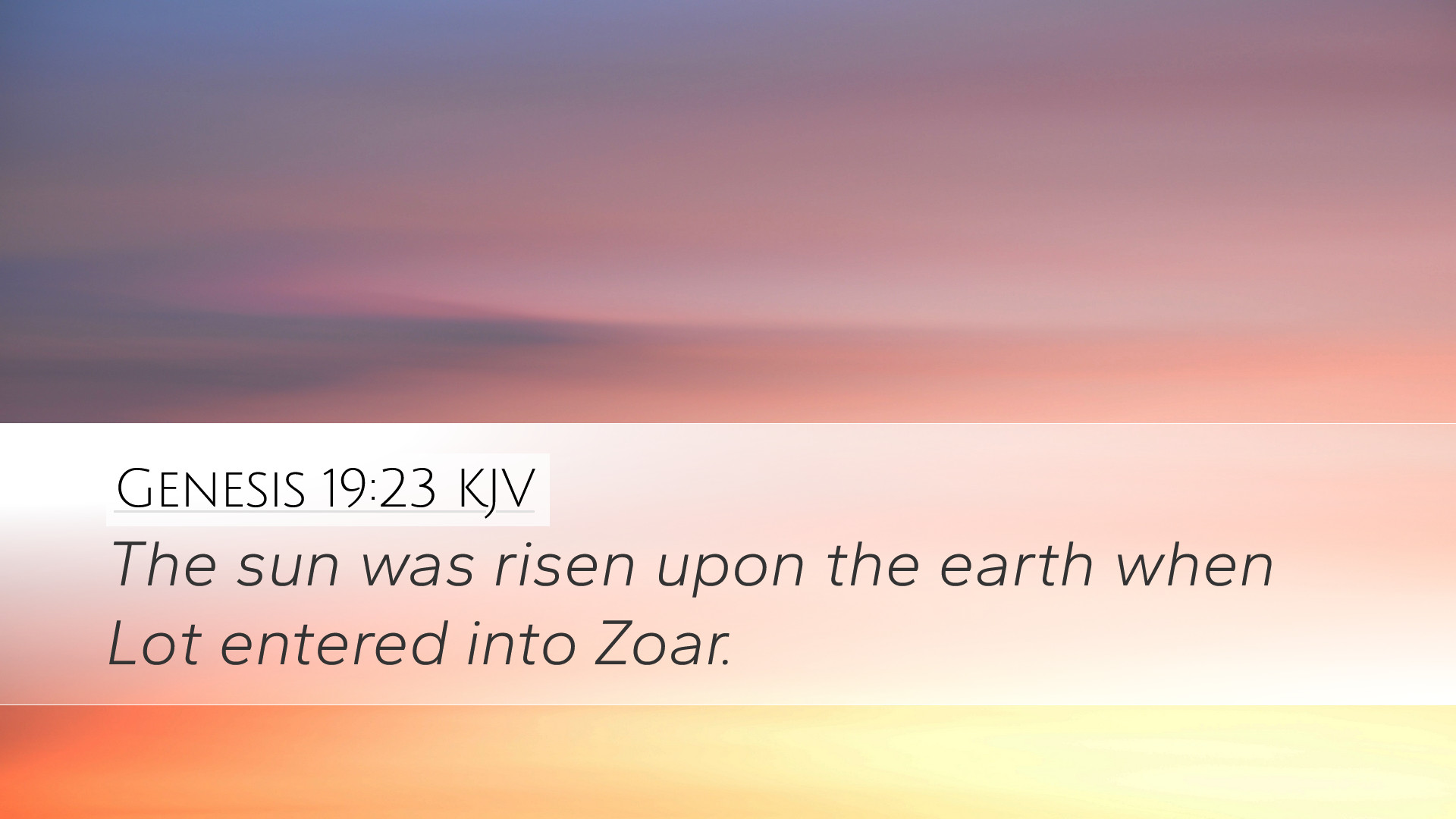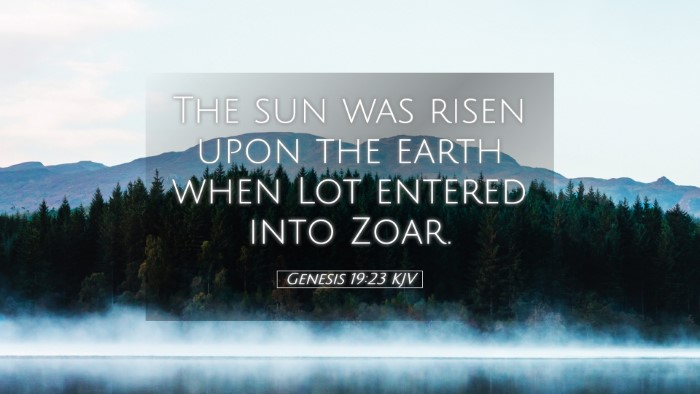Commentary on Genesis 19:23
Scripture Reference: Genesis 19:23 - “The sun was risen upon the earth when Lot entered into Zoar.”
Contextual Overview
Genesis 19 narrates the destruction of Sodom and Gomorrah, cities notorious for their wickedness. Lot, the nephew of Abraham, is urged to flee the impending judgment on these cities. This verse marks a pivotal moment where Lot successfully arrives at Zoar, a city of refuge.
The Significance of Lot's Journey
Within the expanse of Genesis 19:23, we find a moment charged with both urgency and divine intervention. The text serves as a narrative turning point—it signals the end of destruction and the beginning of a new phase for Lot. Public domain commentators such as Matthew Henry and Adam Clarke offer insights into the meaning and implications of this verse.
Matthew Henry's Commentary
Henry emphasizes the Lord’s mercy demonstrated in this verse. He highlights how the dawn signifies not just the physical rising of the sun but symbolizes a new beginning for Lot as he enters Zoar. Henry notes, “Though Zoar was small, it was sufficient for his safety; the Lord was with him.” This affirms that God’s grace extends even to a single individual seeking redemption.
Albert Barnes' Exegesis
Barnes elaborates on the geographical and historical significance of Zoar. He asserts that Lot’s entrance into Zoar represents a temporary haven, a symbol of God’s compassion amidst judgment. Barnes states, “The fact that the sun was risen denotes a new day of life, mercy, and hope for Lot, who had faced the dark night of sin in Sodom.” This serves to highlight God's faithfulness in delivering even those who waver in faith.
Adam Clarke's Insights
Clarke offers a detailed interpretation of the phrase “the sun was risen.” He posits that this signifies the favor of God renewed upon Lot as he leaves the destruction behind. Clarke posits, “It is a figure of the divine consolation which always accompanies the sincere penitent who turns from sin.” The rising sun serves as an illustration of spiritual enlightenment and hope.
Theological Implications
This moment in Genesis offers rich theological insights that can enhance the understanding of sin, judgment, and redemption. The themes of salvation history are vividly illustrated through Lot's journey:
- God’s Judgement: The immediate context serves as a solemn reminder of God’s righteous judgment against sin.
- God’s Grace: Despite the devastation, God's mercy is exemplified through Lot’s deliverance, underscoring the persistence of divine grace.
- The Journey of Faith: Lot's escape to Zoar can be seen as a metaphorical journey of the believer moving from the darkness of sin into the light of salvation.
Practical Applications for Pastors and Theologians
For pastors, this verse serves as a compelling narrative that underscores the importance of guidance and refuge found in God. The act of Lot entering Zoar can be used as a sermon illustration that emphasizes the call for individuals to seek God in times of trouble.
Theological students might explore how the transition from night to day illustrates the transformative power of salvation. It beckons a discussion on how God’s intervention in our lives allows for a change of season, both physically and spiritually.
Additionally, for scholars, the juxtaposition of destruction and refuge in this scripture invites a deeper examination of scripture's portrayal of God’s dual nature as both just and merciful. It raises questions about the interplay between divine judgment and human agency, relevant in contemporary discussions of theology.
Conclusion
Genesis 19:23 encapsulates the profound themes of judgment, grace, and hope. Through Lot's escape and the accompanying divine favor, it chronicles a journey that offers both historical insight and theological significance. The wisdom rendered by Matthew Henry, Albert Barnes, and Adam Clarke provides a multi-faceted understanding that continues to resonate with pastors, theologians, and all who seek to delve into the depths of God's word.


